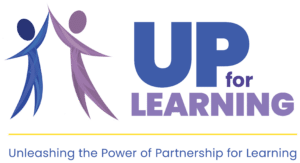Reading the Department of Health brief on Adolescents Who Feel They Matter recently led me to reflect on how grateful I am to have been involved in Getting to (GTY) over the past decade, first as an advisor to a local GTY group and now as the coordinator for the initiative at UP for Learning.
As a relatively new middle and high school Student Assistance Program Counselor (SAP) in 2008, I focused on early intervention and referral for, and prevention of, substance abuse and other youth mental health challenges. I regularly met with students who had been identified as in need of services through disciplinary infractions or general concerns of caring adults or peers. In addition to this direct service role, I advised a prevention group student leaders focusing on raising awareness about risky behaviors. Before long, I stumbled onto the fledgling Getting to initiative, which launched our school into a long-running exploration of Youth Participatory Action Research (YPAR) and youth-adult partnership which drew in students from both areas of my work those identified as needing direct services, and those who self-identified as leaders. Together, these diverse groups of students worked in partnership with adults to apply data and youth voice to create positive change.
YPAR is an approach that trains young people to use research and data to improve their lives and the communities around them, redefining expert in a way that includes youth.Through GTY, students delved into their local Youth Risk Behavior Survey, identified what mattered to them in the data, explored root causes and potential solutions, and then worked in partnership with adults in the school and community to refine and implement concrete action steps. The students became the experts in understanding their own data and applying their experience and insights. The adults in our school and community engaged in meaningful dialogue about issues that mattered.
Over our years of participation in GTY, the students and I not only implemented our own action items directly, but also saw indirect effects of the intergenerational discussions that elevated awareness of the student’s priorities. These changes included both discreet events as well as larger culture shifts, including high school students teaching consent lessons in middle school health classes, assemblies targeting identified issues, a monthly Teen Log in the local paper whereby teens celebrated peer achievements, increased condom availability at school, inclusion of suicide prevention curriculum in health classes, and increased roles for youth in decision making.
I believe that our GTY experience supported a culture of youth engagement, as defined in the aforementioned Department of Health brief: when young people are involved in responsible, challenging actions to create positive change.The Department of Health further notes that, Research demonstrates that youth who feel empowered and feel they matter to people in their community are engaged in their own health and wellbeing in a way that promotes healthy behaviors (nutrition and physical exercise) and decreases harmful ones (alcohol, tobacco, and other drugs, impaired driving, and risky sexual activity). In other words, when young people have the skills and opportunities to use data and to engage with the larger community, good things happen for everyone!
As GTY passes its tenth birthday, I celebrate the fact that over 1000 student leaders at 79 different Vermont schools have had the chance to come together with their peers, teachers, parents and community members to use data, youth voice and youth-adult partnership to become agents of change.

